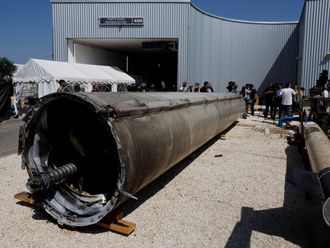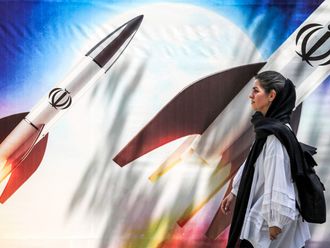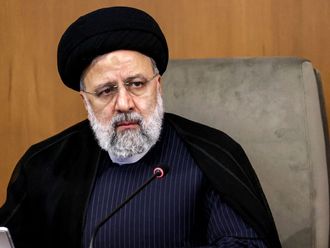Washington: The US State Department is delaying the release of a volume from its US foreign relations history that deals with the CIA-backed overthrow of an Iranian prime minister in the 1950s out of concern that publication could undermine nuclear diplomacy with the Islamic republic.
The decision was made at a September meeting of the department’s advisory committee on historical diplomatic documentation and recorded in minutes released this week. The foreign relations records aren’t supposed to be suppressed for longer than three decades.
Stephen Randolph, the department’s historian, informed the gathering that the volume on US policy in Iran would be withheld “because of ongoing negotiations with Iran.”
Richard Immerman, a Temple University professor who chairs the committee, expressed frustration with the decision. The delay was first reported by online publication Secrecy News.
The history of the 1953 ouster of Iran’s popularly elected prime minister, Mohammad Mossadegh, is well-known. And just last year, newly classified documents offered more details about the motivations that led the US and Britain to take covert action against a Soviet ally and how the CIA executed its plan.
America’s spy agency even acknowledges its role today, citing a “CIA-assisted coup” on a timeline on its public website. President Barack Obama noted in a 2009 speech in Cairo that “in the middle of the Cold War, the United States played a role in the overthrow of a democratically elected Iranian government.”
But the episode continues to poison US-Iranian relations more than six decades later.
Mossadegh’s ouster led to the return of Shah Reza Pahlavi, whose regime turned increasingly oppressive until it was overthrown 26 years later by followers of Ayatollah Ruhollah Khomeini during the Islamic Revolution. The story of Mossadegh is still regularly referenced by Iranian leaders as an example of American meddling, an argument they make in relation to their nuclear programme.
Washington and its partners are hoping to clinch a deal by July setting long-term limits on Tehran’s enrichment of uranium and other activity that could produce material for use in nuclear weapons. Iran says its programme is solely for energy production and medical research purposes. It has agreed to some restrictions in exchange for billions of dollars in relief from US economic sanctions.
Separately on Thursday, the State Department’s historian released a volume of records devoted to President Jimmy Carter’s peace mediation between Israeli and Egyptian leaders that culminated in their 1979 peace treaty.
Despite the historic diplomatic breakthrough, the study documents how Carter was unable to broaden the peace between Israel and Arab governments or to address the situation of Palestinians in the West Bank and Gaza Strip.
Some information is withheld from that report, too. The Carter Centre rejected a request for access to the former president’s complete, unedited diary. Former Defence Secretary Harold Brown and National Security Adviser Zbigniew Brzezinski provided department historians with significant portions of their personal papers. Brzezinski, however, wouldn’t show them his personal journals.











